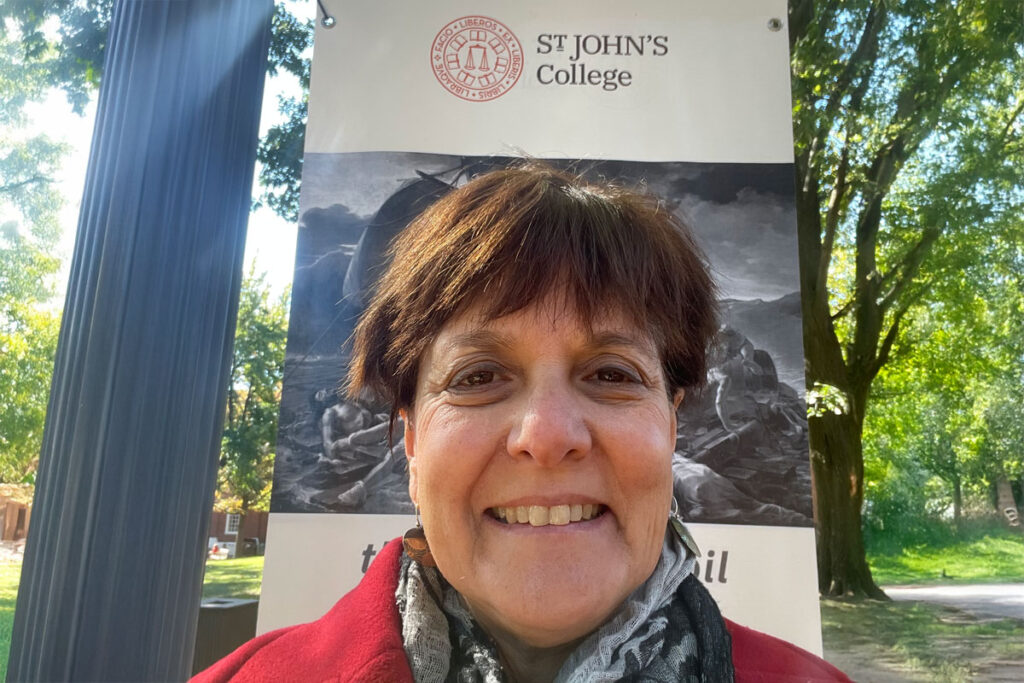
The start of my Masters program at St. Johns College has been eye-opening, thought-provoking, and affirming all at once. It has taxed my mind, my heart, and my budget and yet, it is all worthwhile.
Reading Homer, Chaucer, Shakespeare, and Aeschylus is toughgoing. These texts are rich tapestries of conflict and contradiction, complex characters, and stunning imagery that can make them feel inaccessible. While on the surface, reading the Great Books would seem totally divorced from the business world that I inhabit during the day, the opposite is true.
This academic pursuit is only making me stronger as a communications strategist.
The Power of Facilitated Conversation
It’s fair to say that I would have never gained an understanding of these works without the structure of a seminar or tutorial. And that is the secret sauce.
The classes are not formal lectures but rather structured, facilitated discussions guided by the tutors, aka professors. I often arrive at class utterly confused, thinking I hate the book or play only to leave a few hours later with insights and revelations from my classmates and my own discoveries that change my mind.
Too many of our conversations and meetings in business go off the rails because we don’t structure our gatherings with a clear agenda and rules of engagement. In the seminar, we are asked to speak only about the text that we all are assumed to have read and to refer to each other by honorific and last name so that we are all on equal footing. We are expected to be civilized even if we disagree and that allows for dialogue. That respectful approach in Board meetings, staff meetings, etc., and ensuring that we all have the same information and a willingness to open our minds could make our working relationships so much better.
The Struggle to Understand
There is a great deal of idea-wrestling going on in these seminars, where we work through our thoughts to gain a better sense of clarity. The struggle to process and understand is, in and of itself, a benefit and one we should not shy away from in our companies or organizations.
The Confidence Not to Know
One thing about being an older student is that I’m not afraid of not knowing or not getting it. The experiences throughout my career have given me the confidence not to worry about what others will think when I ask a question. That was not the case in my undergraduate years. In one class, I finally got the courage after many months into the class to ask a question and the professor told me it was a stupid question and moved on. That would never happen in the seminars I take now. Creating a culture that does not punish mistakes and encourages asking questions no matter how simple allows us all to grow and can lead to breakthroughs.
The More Things Change, the More They Stay the Same
These books remind us that the human behavior we see in the Boardroom or on the battlefield today is not new. The difference is that we have different ways of exhibiting heroism, pride, and deception, and technology has changed how we engage with each other and wage war. But human emotions and actions haven’t really changed in thousands of years. Some of us rise to the occasion and act selflessly. Others do not. Our conflicts and yearnings really haven’t changed at all.

